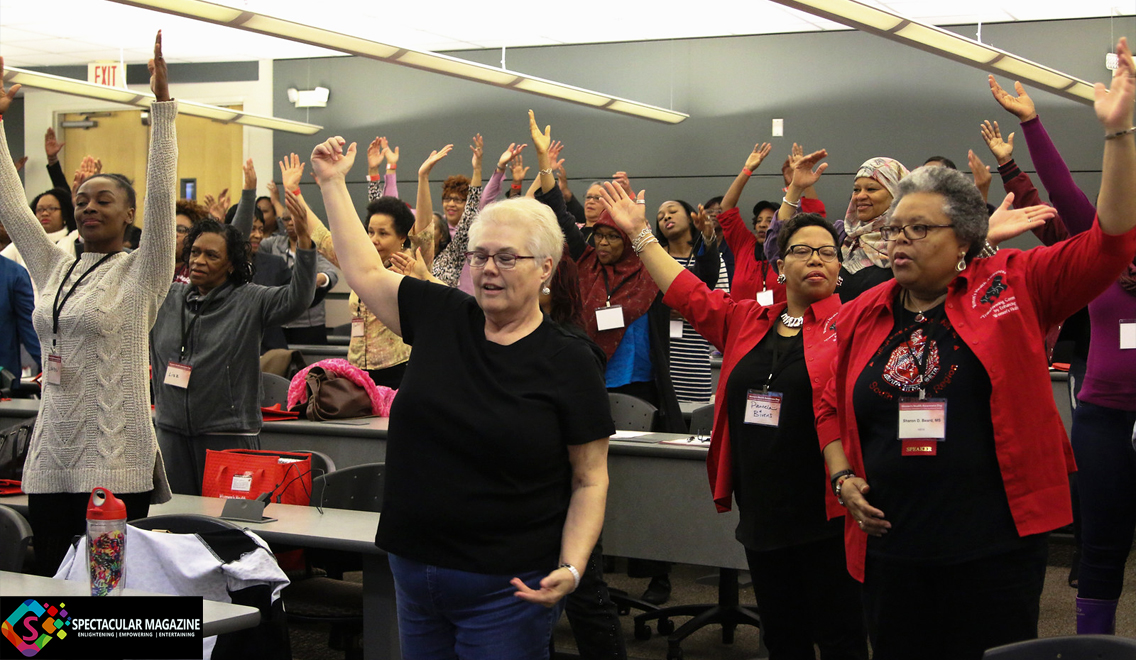Women’s Health Awareness 2019 Features Behavioral Health Sessions for Total Wellness of Mind, Body & Spirit
Chronic stress, anxiety, and depression are psychological health problems that can limit quality of life and vitality among women in the United States. For many women, cultural beliefs and stigma that exist in their families and communities may interfere with engagement in healthy discussions about causes of mental health challenges and strategies and resources available to help resolve them.
 Because of various historical, cultural, and societal barriers, many women unnecessarily suffer in silence. This can be complicated for women, and women in color in particular, because of factors associated with what is known as Superwoman Schema. Women may perceive obligations to (1) display strength at all times, (2) suppress their emotions, (3) resist help from others, (4) succeed without access to sufficient resources to support their success, and (5) prioritize caregiving and the needs of others over their own needs and self-care. As a result, women may delay engagement with mental health care, which can lead to worsening of symptoms, unhealthy coping strategies (emotional overeating, sedentary behavior, or relationship challenges), and other unintended health problems (increased risk for overweight and obesity, heart disease, or diabetes).
Because of various historical, cultural, and societal barriers, many women unnecessarily suffer in silence. This can be complicated for women, and women in color in particular, because of factors associated with what is known as Superwoman Schema. Women may perceive obligations to (1) display strength at all times, (2) suppress their emotions, (3) resist help from others, (4) succeed without access to sufficient resources to support their success, and (5) prioritize caregiving and the needs of others over their own needs and self-care. As a result, women may delay engagement with mental health care, which can lead to worsening of symptoms, unhealthy coping strategies (emotional overeating, sedentary behavior, or relationship challenges), and other unintended health problems (increased risk for overweight and obesity, heart disease, or diabetes).

It is important for women to understand the environmental causes and social determinants that increase risk for mental health conditions. According to a recent report published by the American Psychological Association, social determinants of mental health, can include toxic stress, work-related stressors, caregiving or financial stress, neighborhood and community factors, and issues related to race and racism. Women may also experience network stress, as a result of life challenges faced by family members, friends, and loved ones. Racial/ethnic disparities can result from greater exposure to social determinants of health among women of color and limited access to quality, culturally-relevant mental health care.

However, it is important for women to know that they are not alone, and that help is available. The more women know about the factors that can contribute to mental health conditions and the resources available to alleviate them, the more they can do to achieve resilience and a life of wellness and joy. Founded by Dr. Joan Packenham, Women’s Health Awareness (WHA 2019), is a FREE women’s health conference open to all women of the Triangle are and surrounding counties, that has been committed to promoting health, including mental and behavioral health, among women.
Two 2019 WHAD behavioral health sessions entitled Living My Best Life, Parts I and II will focus this year on helping women to (1) demystify anxiety symptoms, diagnoses and strategies for treatment and relief, and (2) develop strategies to achieve health and resilience despite social and environmental factors that can affect their mental health. Numerous other sessions will address wellness strategies, including mindfulness meditation to help women promote health and well-being in their lives.
The Fifth Annual Women’s Health Awareness wellness conference will take place on Saturday, April 6, 2019 on the campus of North Carolina Central University. The National Institute of Environmental Health Sciences is the lead sponsor with co-sponsors Durham Alumnae Chapter of Delta Sigma Theta Sorority, Inc., the Durham Alumnae Delta House, Inc., and North Carolina Central University Department of Health Education.
On-site registration is available. For more information about Women’s Health Awareness Day 2019 go to www.niehs.nih.gov/whad or call 984-287-4414.

Dr. Cheryl L. Woods Giscombe is the Levine Family Distinguished Term Associate Professor in Quality of Life, Health Promotion, and Wellness at the UNC Chapel Hill School of Nursing, Director of the Interprofessional Leadership Institute for Mental Health Equity, Adjunct Associate Professor, UNC School of Medicine/Dept. of Social Medicine, and Faculty Scholar and Fellow of the Harvard Macy Institute
References can be requested.

